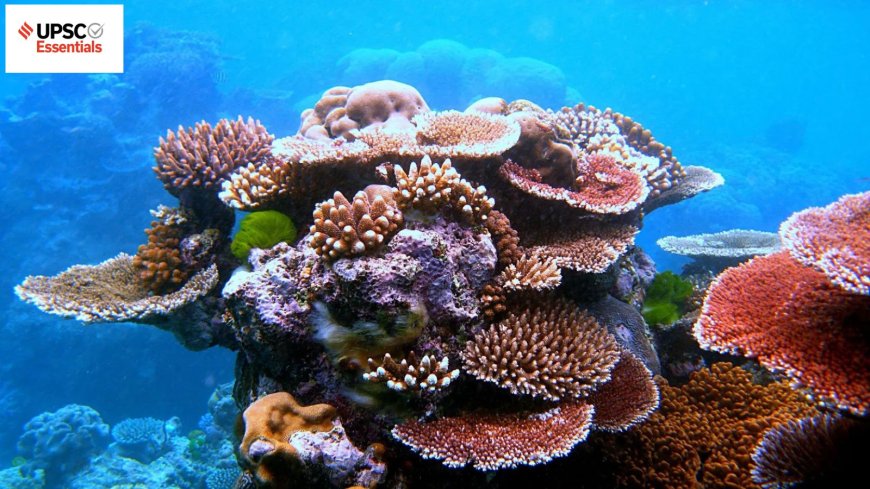UPSC Essentials | Mains answer practice — GS 3 : Questions on coral reefs and food adulteration (Week 100)

UPSC Essentials | Mains Answer Practice — GS 3: Questions on Coral Reefs and Food Adulteration (Week 100)
Asarkari - Sarkari News, Jobs & Updates
By Priya Sharma, Team Asarkari
Introduction
In this week’s edition of UPSC Essentials, we focus on critical topics that play an essential role in the General Studies Paper 3. Specifically, we will delve into two pertinent issues: the significance of coral reefs and the dangers of food adulteration. Each of these subjects not only holds academic weight but also significant implications for environmental policy and public health. Let’s explore practice questions that can enhance your preparation for the UPSC Mains exam.
Understanding Coral Reefs
Coral reefs are not just beautiful underwater ecosystems; they are vital to marine life and the human economy. As a part of your preparation, consider the following questions:
Practice Question 1:
Discuss the importance of coral reefs in marine biodiversity and the threats they face due to climate change. How can policymakers work to protect these ecosystems?
This question encourages you to explore the ecological roles of coral reefs, the concept of marine biodiversity, and the interplay between natural and human-induced threats, such as ocean acidification and overfishing.
Practice Question 2:
Evaluate the impact of coral bleaching on both the environment and local communities dependent on coral reefs. What strategies can be implemented to rehabilitate damaged reefs?
In answering this, you should analyze the socio-economic consequences of coral bleaching, along with discussing restoration techniques like coral gardening or artificial reefs.
The Issue of Food Adulteration
Food adulteration remains a persistent public health challenge, significantly affecting the safety and well-being of consumers. Here are two practice questions to consider:
Practice Question 3:
What are the primary causes of food adulteration in India, and what measures can individuals and the government take to mitigate this issue?
This question seeks a detailed examination of the factors contributing to food adulteration, such as economic greed and insufficient regulatory frameworks.
Practice Question 4:
Analyze the consequences of food adulteration on public health and the economy. Provide case studies to support your answer.
Your response should include compelling statistics and examples of foodborne illnesses that highlight the urgency for stringent regulations and consumer education.
Conclusion
As the UPSC Mains approach, practicing these questions on coral reefs and food adulteration will equip you with a nuanced understanding that combines environmental science, public policy, and health economics. Engaging with these topics will prepare you not only for the exam but will also enrich your perspective as a responsible citizen. For more updates, visit Asarkari.
Keywords
UPSC, GS 3, Coral Reefs, Food Adulteration, Practice Questions, Marine Biodiversity, Public Health, Environmental Policy, UPSC Preparation, Climate Change, Coral Bleaching, Food Safety.What's Your Reaction?
 Like
0
Like
0
 Dislike
0
Dislike
0
 Love
0
Love
0
 Funny
0
Funny
0
 Angry
0
Angry
0
 Sad
0
Sad
0
 Wow
0
Wow
0










































